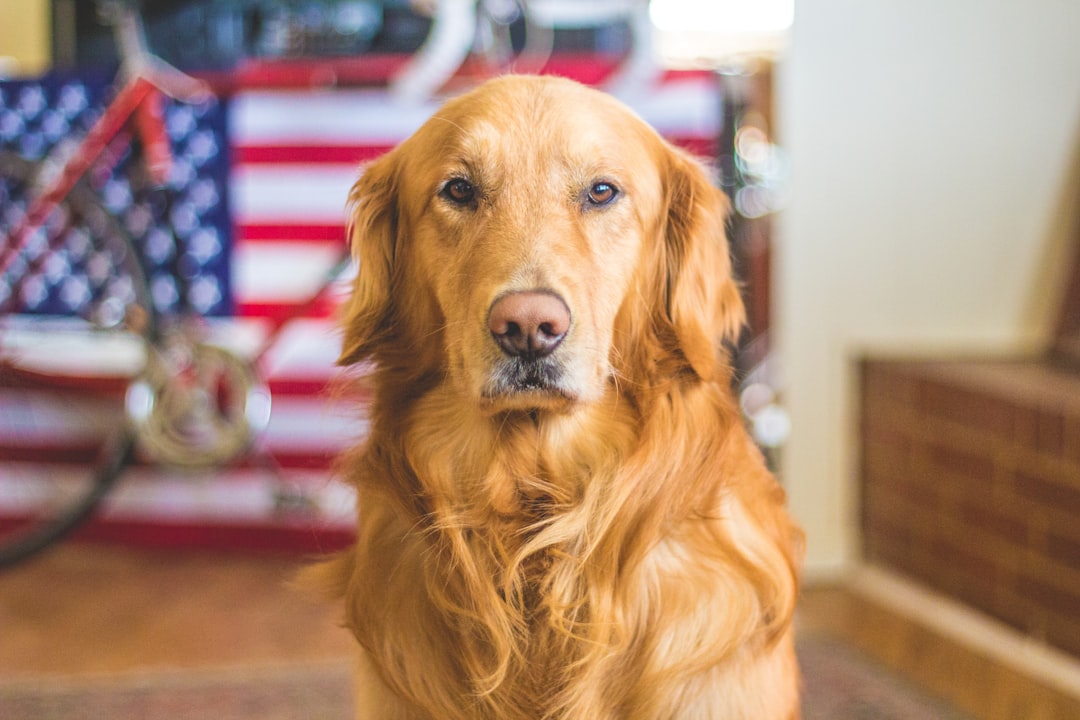Unraveling the Mystery of Dog Diarrhea: Causes, Symptoms, and Prevention Tips
Learn about the common causes of dog diarrhea, how to identify them, and when to contact a vet, as well as home remedies and treatments to help your furry friend.
Common Causes of Dog Diarrhea
The common causes of dog diarrhea encompass a wide range of factors that can affect a dog’s digestive system. For instance, mild diarrhea in dogs can result from ingesting something that doesn’t sit well with them or transitioning to a new type of food, highlighting the delicate nature of a dog’s digestive system when it comes to dietary alterations. Moreover, dogs can experience diarrhea due to various health conditions such as pancreatitis, inflammatory bowel disease, colitis, liver or kidney disease, and even intestinal cancer, emphasizing the potential seriousness of this symptom and the need for timely intervention.
Furthermore, the differences between the digestive systems of dogs and humans can also contribute to episodes of diarrhea. For example, dogs may have a higher tolerance for certain foods, while others can cause adverse reactions leading to digestive disturbances. Additionally, pinpointing the exact cause of diarrhea in dogs can be quite intricate due to the multitude of potential triggers. This complexity underscores the importance of careful observation, analysis, and, if necessary, seeking veterinary guidance to identify and address the underlying issue effectively. It also highlights the significance of pet owners being attentive to their dog’s behaviors and any changes in their environment, diet, or health that could contribute to the onset of diarrhea.
Identifying Common Causes
When it comes to identifying the common causes of dog diarrhea, it is essential to consider specific factors that can trigger this condition. Dietary indiscretion, which refers to a dog ingesting something unusual or unsuitable for consumption, is a common cause of diarrhea in dogs. For example, a dog may have diarrhea after consuming human food scraps from the garbage. A change in diet, such as introducing new food or treats, can also lead to digestive upset and diarrhea in dogs. It is crucial for pet owners to introduce new food gradually and monitor their dog for any adverse reactions to prevent dietary-related diarrhea.
Furthermore, food intolerance and allergies are significant considerations when identifying the causes of dog diarrhea. Just like humans, dogs can develop intolerances or allergies to certain ingredients in their food, leading to gastrointestinal issues, including diarrhea. For instance, a dog with a sensitivity to a specific protein source may experience diarrhea after consuming food containing that ingredient. Identifying and eliminating the culprit from the dog’s diet can help alleviate diarrhea and improve the pet’s overall well-being.
In addition to dietary factors, understanding the characteristics of the diarrhea itself is crucial in identifying common causes. The consistency and color of the diarrhea can offer valuable insights into the underlying cause and the overall gut health of the dog. For example, watery diarrhea may indicate a different trigger than soft, formed stool. Paying attention to these details can aid in determining the specific cause of the diarrhea, guiding appropriate interventions and preventive measures. Lastly, recognizing the frequency of diarrhea episodes in a short period is vital, especially in older or immunocompromised dogs. This can signal the presence of a more serious health issue, prompting the need for immediate veterinary evaluation and care.
 Signs and Symptoms
Signs and Symptoms
Recognizing the signs and symptoms of dog diarrhea is crucial for pet owners to understand when to seek veterinary care. While a single episode of diarrhea in a dog may not immediately raise concerns, recurrent episodes can be indicative of an underlying health issue. For instance, if a dog experiences more than two episodes of diarrhea, it may signal an underlying problem that requires further evaluation by a veterinarian. An example of this could be a change in diet that is not agreeing with the dog’s digestive system, leading to persistent diarrhea.
Furthermore, specific symptoms such as straining to pass a stool and passing small amounts of watery diarrhea may suggest a potential blockage in the digestive system, necessitating immediate attention from a veterinary professional to prevent further complications. For example, the ingestion of foreign objects or toxins could lead to an obstruction in the gastrointestinal tract, resulting in these symptoms. Additionally, the presence of other concerning signs like blood in the stool, vomiting, lack of appetite, weakness, or dehydration should serve as red flags for dog owners to seek prompt veterinary care. An example could be an underlying viral or bacterial infection that requires targeted treatment to prevent the condition from worsening.
It’s important to emphasize that chronic diarrhea in dogs should not be overlooked, as it can be a sign of a serious health issue that demands professional intervention to identify the root cause and provide appropriate treatment. For instance, chronic diarrhea in older dogs might be an indication of underlying issues such as inflammatory bowel disease or kidney disease, requiring thorough evaluation and management by a veterinarian. Therefore, being vigilant about these signs and symptoms is vital in ensuring the overall well-being of dogs and addressing any potential health concerns in a timely manner.
 Home Remedies and Treatments
Home Remedies and Treatments
When it comes to treating dog diarrhea at home, there are several options that can help to alleviate symptoms and support your dog’s digestive health. One common approach is to fast your dog for 12-24 hours, allowing their gastrointestinal system to rest and recover from any irritation or inflammation. After the fasting period, introducing a bland diet can be beneficial, consisting of cooked rice, chicken, and plain pumpkin, which are gentle on the stomach and can help firm up the stool. Additionally, natural yogurt and probiotics can aid in restoring the balance of healthy bacteria in the gut, promoting better digestion and overall gut health.
In addition to these dietary modifications, there are several home remedies that can be used to manage dog diarrhea. For instance, providing over-the-counter treatments specifically formulated for dogs, such as anti-diarrheal medications, can help control loose stools and reduce discomfort. Furthermore, homemade remedies like rice water, plain cooked white rice, pumpkin, and yogurt have soothing properties that can provide relief and support the healing process for your dog’s digestive system. It’s important to note that any home treatment should be discussed with a veterinarian, especially if the diarrhea persists or if your dog has underlying health conditions that may require specific care.
Overall, employing a combination of a bland diet, natural remedies, and over-the-counter treatments can significantly aid in resolving a dog’s diarrhea, providing comfort and promoting a speedy recovery. However, it’s essential to consult with a veterinarian to ensure the most suitable and effective treatment plan for your dog’s specific condition.
When to Contact a Vet
Recognizing when to contact a veterinarian for your dog’s diarrhea is crucial for their well-being. If your dog experiences two or more episodes of diarrhea, it could indicate an underlying issue that requires professional attention. For instance, recurring bouts of diarrhea, especially in older or immunocompromised dogs, may signify a serious health problem, necessitating a visit to the vet. Furthermore, if your dog is straining to pass a stool or shows additional concerning symptoms such as lack of appetite, blood in the stool, weakness, or signs of dehydration, it’s imperative to seek veterinary care promptly to address any potential health issues.
Another important aspect is to never administer medications intended for humans to dogs without consulting a vet. This is crucial as medications formulated for humans can have adverse effects on dogs, and inappropriate treatments can exacerbate the situation. Understanding when to seek veterinary care for dog diarrhea is also vital when other physical symptoms are present, the diarrhea persists, dehydration occurs, or if something just doesn’t seem right with your dog. This awareness ensures that any underlying health problems are addressed promptly and appropriately, safeguarding the health and well-being of your beloved pet.
Conclusion
Understanding the common causes of dog diarrhea is crucial for pet owners to effectively prevent and manage this issue. For instance, stress can contribute to dog diarrhea, as dogs can experience gastrointestinal upset due to anxiety, changes in routine, or environmental stressors. This emphasizes the importance of maintaining a stable and nurturing environment for dogs to minimize the risk of stress-induced diarrhea.
Additionally, dietary changes can lead to diarrhea in dogs. For example, abruptly switching a dog’s food or introducing new treats without a gradual transition can disrupt their digestive system, resulting in diarrhea. This underscores the significance of gradually transitioning a dog to a new diet and being mindful of any adverse reactions to specific foods or ingredients.
Moreover, recognizing the signs that a dog’s diarrhea may indicate a serious health problem is essential. For instance, if a dog experiences recurring bouts of diarrhea in a short period, especially if the dog is older or immunocompromised, it could signify an underlying health issue. This highlights the importance of promptly seeking veterinary attention to address potential health concerns and ensure the well-being of the dog.
In conclusion, by being knowledgeable about the common causes of dog diarrhea and remaining vigilant about their pet’s health, owners can take proactive measures to prevent diarrhea and promote a healthy digestive system in their dogs. Timely intervention and responsible pet care are pivotal in addressing diarrhea-related concerns and safeguarding the overall wellness of canine companions.

